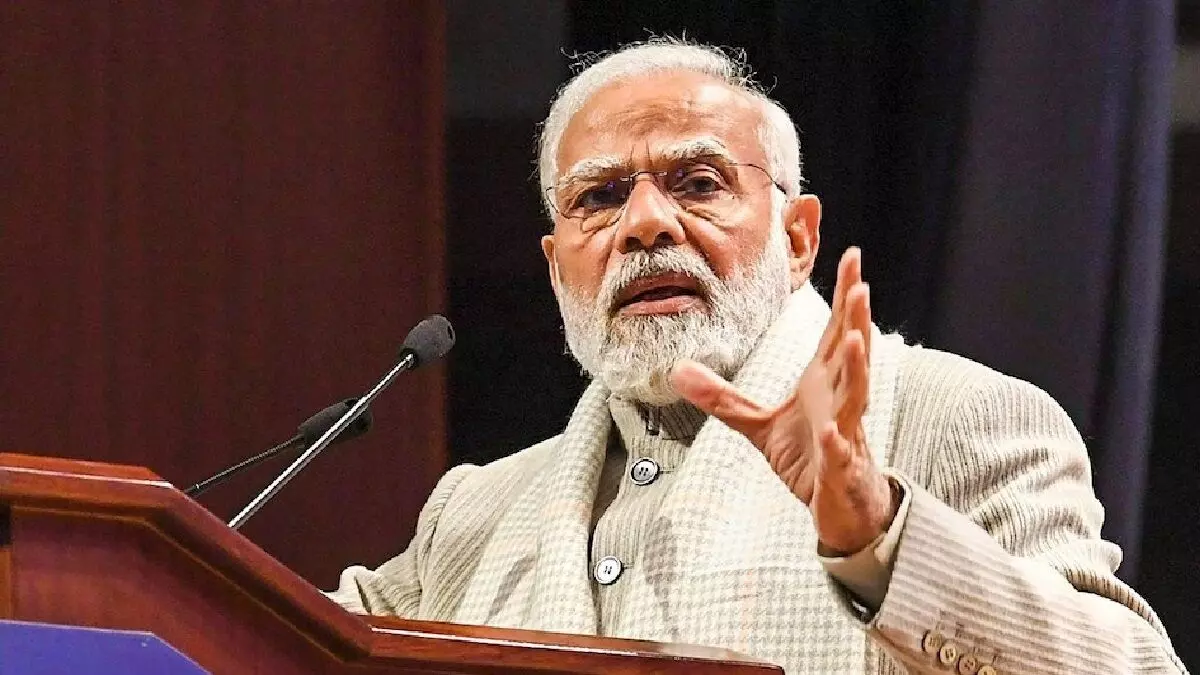TRENDING TAGS :
PM Modi launches world's largest grain storage scheme | Check details
PM Modi informed that that 700 lakh tonne storage capacity will be created in the next five years, with an investment of ₹1.25 lakh crore.
PM Narendra Modi launched the world's largest grain storage plan in the cooperative sector, for farmers on Saturday. He informed that that 700 lakh tonne storage capacity will be created in the next five years, with an investment of ₹1.25 lakh crore. Under the scheme, thousands of warehouses and godowns will be constructed across the country.
On Saturday, Modi inaugurated 11 godowns set up by 11 primary agricultural credit societies (PACS) across 11 states.
He also laid the foundation for creating godowns and other agri infrastructure in 500 more PACS. He also inaugurated a project for computerisation of 18,000 PACS across the country.
"Today we have launched the world's largest storage scheme for our farmers. Under this, thousands of warehouses and godowns will be constructed across the country," said Modi as quoted by news agency PTI.
The Prime Minister criticised previous governments for not developing storage infrastructure in the country, due to which farmers suffered huge losses.
"Previous governments never paid due attention to this problem. But today through PACS, this problem is being addressed. Under the world's largest food grain storage programme, 700 lakh tonne storage capacity will be created in the next five years. On this initiative more than ₹1.25 lakh crore will be spent," said PM Modi.
The Prime Minister said farmers would now be able to store their produce in the godowns and warehouses, get institutional credit against it, and sell their items when market prices are remunerative.
Modi urged cooperative organisations to work towards reducing imports of food items, including edible oils and pulses, and also fertilizers. He suggested that cooperatives should make a list of items that India imports and plan an action to produce or manufacture them locally.
"Our fuel import has to be reduced. In ethanol, we are working in a big way. Ethanol production has increased significantly," Modi said.
He talked about various initiatives taken by the government in the last 10 years for the growth of the cooperative sector as part of its vision of "Sahakar se Samridhi", and specifically highlighted the creation of a specific ministry for the cooperative sector. Through a separate ministry, efforts are being made to strengthen cooperatives in the country, he said.
Modi also highlighted the importance of bringing transparency in the election system in cooperatives, saying this would encourage more participation of people in the cooperative movement.
He highlighted that the Multi-State Cooperative Societies Act has been amended and PACS are being computerised.
Modi referred to farmer producer organisations (FPOs), he said small farmers are becoming entrepreneurs and even exporting their produce.
"We had set a target of establishing 10,000 FPOs. We have already set up 8,000 FPOs. Their success is being discussed at the global level now. Fishery and animal husbandry sectors are also benefiting from the cooperatives," he said.
In the next five years, the target is to set up 2 lakh PACS and the maximum will be in the fishery and allied farm sectors.
What the world's largest grain storage scheme plans to achieve
The scheme aims to create storage capacity for storing 100 per cent of India's grain production. It aims to seamlessly integrate PACS godowns with the food grain supply chain, with a collaborative effort of NABARD and spearheaded by the National Cooperative Development Corporation (NCDC).
The initiative is being implemented through the convergence of various existing schemes like the Agriculture Infrastructure Fund (AIF), Agriculture Marketing Infrastructure (AMI), etc. to enable PACS participating in the project avail subsidies and interest subvention benefits for undertaking infrastructure development.



